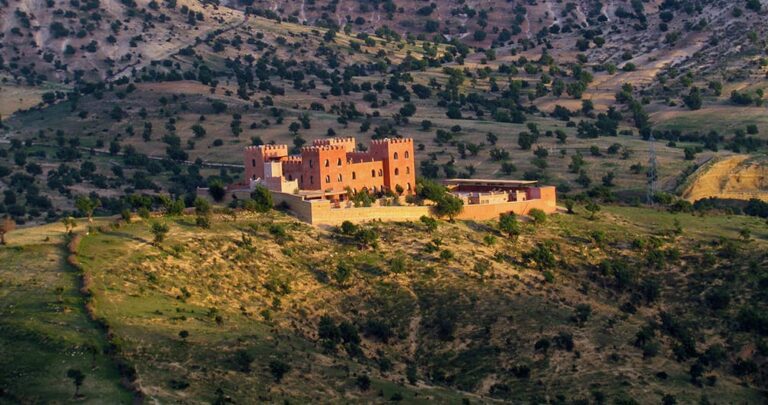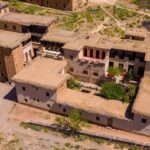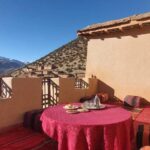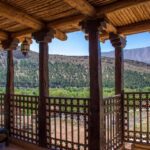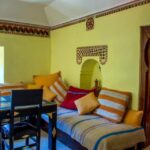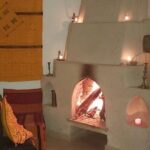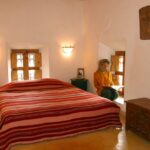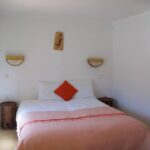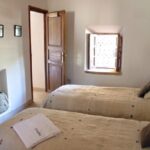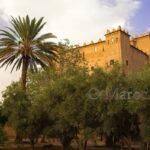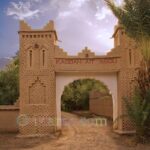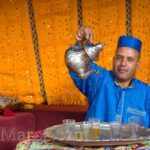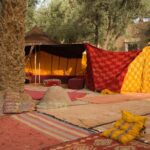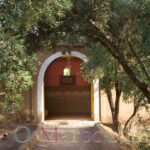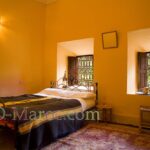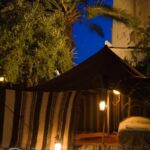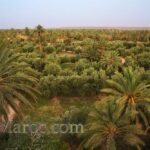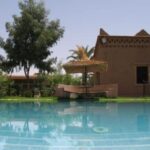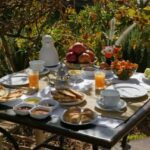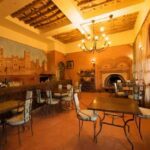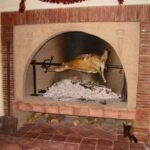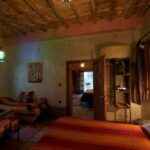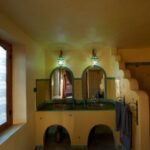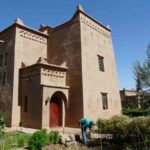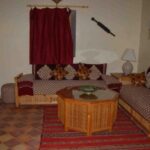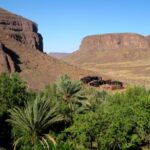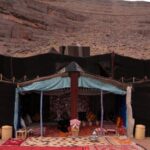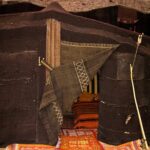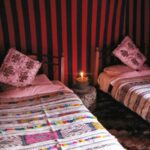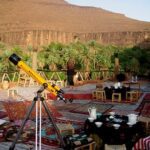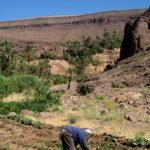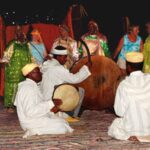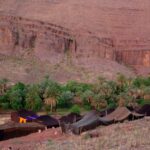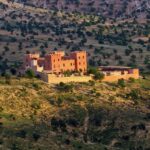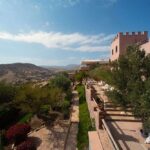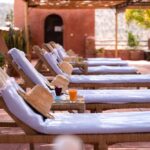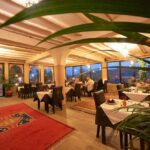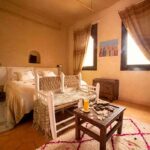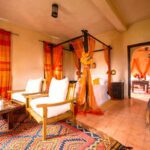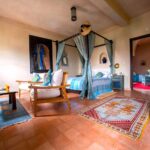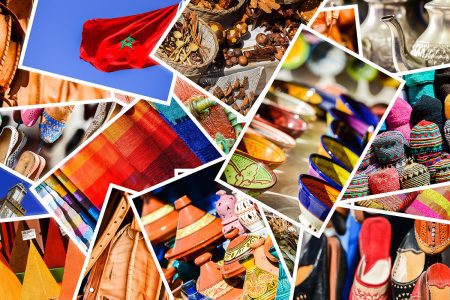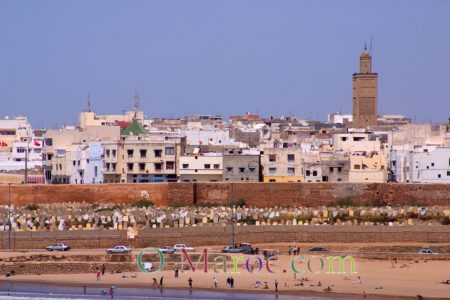After the government initiatives (in Morocco, we call them “royal”), here is our selection of ecolodges in Morocco, individual initiatives that are essential to anchor Morocco’s ecological policy in reality.
- what is an ecolodge?
- despite its English flavour, is a word created by the French, based on “lodge”, of course.
It corresponds to a human-sized establishment (the international ecotourism company says between 5 and 75 rooms), which implements real actions to minimise its environmental impact, whether during construction or during operation.
By involving local people, and allowing them to share in the profits managed, it is part of a solidarity tourism and sustainable development approach.
In Morocco, there are very few ecolodges, or at least establishments claiming this title. And almost all of them are in the south, with one exception.
Here is a review of these accommodations, which we suggest either for a stay in Morocco, or in our suggested itineraries.
- the Itrane kasbah in the Ait Bouguemez valley
- the Ait Abbou kasbah in Skoura
- the Sawadi kasbah, also in Skoura
- Oued Noujoum, ecolodge in Ouarzazate
- Atlas Kasbah near Agadir
- the Mezgarne oasis in Tazzarine
Ecolodge in the Haut Atlas, Dar Itrane
Dar Itrane is an establishment built and managed by the Origins group, which bears its trademark. Eco-friendly construction and strong local integration. The activities on offer at this lodge give you the chance to discover the Berber culture, which is still very strong in the mountains. The stay (from €550 for a week) can be enhanced by excursions, and you can take part in the cooking and cultivation of the garden.
The setting, the valley of Aït Bouguemez, is one of the most beautiful sites in Morocco, and a real treat for mountain hikers.
A traditional kasbah in Skoura : Ait Abbou
Ait Abbou is one of the most beautiful kasbahs in Skoura, and one of (the?) highest in Morocco, with its towers rising 26 metres above the palm grove. In summer, it’s a delight to sleep on the terrace and wake up to the sound of birdsong, which quickly spreads as the sun rises.
Ait Abbou is a very good example of these traditional establishments, which are ‘naturally’ ecological. The kasbah offers a few fairly simple rooms, and the possibility of sleeping in tents, in bivouacs set up in the garden.
The ‘garden’ is in fact a small farm, with large orchards, a vegetable garden and a few animals, a sheepfold and a henhouse. All crops are grown without pesticides or chemicals, and water use is carefully controlled. The owner is a Berber from Skoura who bought the kasbah from the family who owned it around ten years ago, with the aim of making it as environmentally friendly as possible.
Another eco-friendly establishment in Skoura: Sawadi
Sawadi, on the other hand, is an accommodation that has been designed to be totally ecological from the outset. Only 20% of the estate’s 4 hectares are given over to housing, the rest to trees, crops and livestock. All the crops are grown using natural fertilisers, and insect pests are controlled using black soap. Guests eat farm produce and livestock.
Water is used sparingly, and waste water is filtered using equipment that meets European standards.
The buildings were constructed using traditional adobe methods, and two of them are naturally air-conditioned using the Canadian well technique.
An ecolodge near Ouarzazate : Oued Noujoum
Oued Noujoum is a fixed Berber bivouac in the Ouarzazate mountains. Located just above a small oasis, it offers guests exceptional views.
The tents have en-suite bathrooms, and there are a variety of activities on offer, including vegetable gardening and stargazing.
Oued Noujoum (the river of stars in Arabic) was the 2010 winner of the Trophées de l’Ecologie organised by Aujourd’hui le Maroc for the overall quality of its product.
A kasbah near Agadir: Atlas Kasbah
This eco-friendly guest house is located in a special area of Morocco, the argan grove reserve (remember that argan oil is not cultivated and only grows in Morocco, in a restricted area).
The Atlas Kasbah received a responsible tourism award from the Ministry of Tourism. The Franco-Moroccan couple who run the place also have a master’s degree (well, one for each of them, that makes two) in sustainable development.
As at Sawadi, the Atlas Kasbah pays particular attention to the employment and training of its staff, who are Berbers originally from the area.
In this desert-like region, water is used sparingly and bio-degradable products are used for cleaning.
80% of the energy consumed comes from renewable sources.
The architecture is traditional, and 90% of the estate is reserved for gardens.
Exceptionally in Morocco, the establishment is non-smoking.
What about the Oasis de Mezgarne? Ecolodge or not?
The fixed bivouac was built using traditional methods, using only adobe with a few stone foundations.
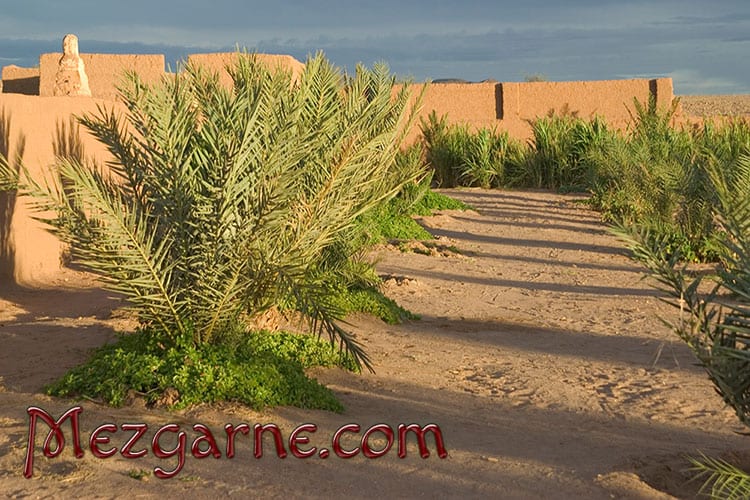
We use solar energy to heat the showers, but not only that: the early-morning showers are heated with a traditional wood-burning oven, just like in the hammams, fuelled solely by reclaimed dead wood. (In the desert, if you want to use wood, you never cut live wood, you use what is already dry).
The water that feeds the oasis and waters our garden and palm trees is pumped from a nearby well. The drip system will be installed this winter. It took lengthy negotiations and the support of an engineer from Agadir to convince our gardener that this method was more effective than “putting a lot of water at the foot of the palm trees” (when you talk about awareness…. you have to add the respect due to elders, which isn’t always easy).
We don’t have and we won’t have a swimming pool.
Our waste water goes into a septic tank, and is filtered so as not to pollute the water table (and our well).
We use gas for cooking and to power the fridge. And a generator for electricity, for one or two hours in the evening. The installation of the solar panels was hampered by the lack of a local technician to carry out maintenance in the event of a breakdown, as the nearest one is nearly three hours away.
Our plants, which we use in our tagines, are grown using only manure and no pesticides.
We have replanted around fifty palm trees, and plan to plant a second group, outside the walls, to continue greening the area.
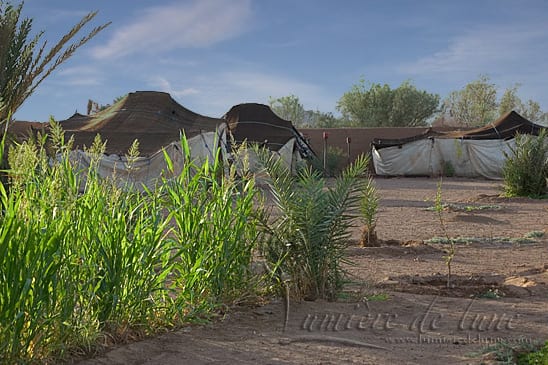
We systematically collect all our rubbish, which we burn for want of anything better (there is no collection or recycling at Tazzarine).
Like many small establishments, like Morocco, we are ‘on the way to’, we are working to improve our environment and preserve it, but we are constrained by local limitations, with on top of that a very modest price range, which doesn’t allow us to really invest. So we’ve decided to implement other types of action… which we’ll tell you about in the next article.
 A typo or syntax error? You can select the text and hit Ctrl+Enter to send us a message. Thank you! If this post interested you, maybe you can also leave a comment. We'd love to exchange with you !
A typo or syntax error? You can select the text and hit Ctrl+Enter to send us a message. Thank you! If this post interested you, maybe you can also leave a comment. We'd love to exchange with you !

